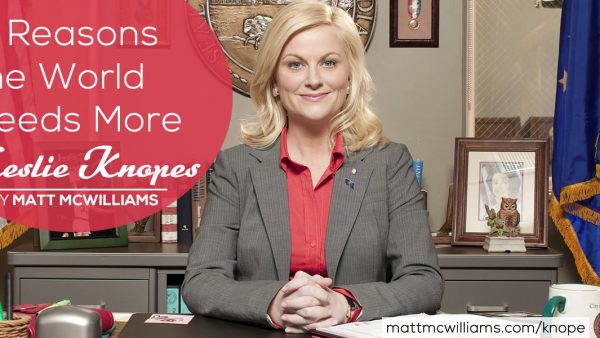Money makes for a great scorecard, but a terrible motivator. That’s a lesson I learned the hard way when I was a new leader almost a decade ago. As a small startup, we assembled a team of what could best be described as a rag-tag group of people. Think The Bad News Bears, but older. And I had no clue how to motivate them.
Where Motivation Truly Comes From
Many persons have a wrong idea of what constitutes true happiness. It is not attained through self-gratification but through fidelity to a worthy purpose. – Helen Keller (TWEET THAT)
When I first began to lead others in the marketplace, I thought that everyone was like me. Money was the scorecard and it was also the motivator. Boy, was I wrong!
I’d struggled for almost a year to find better ways to motivate our team and push them to new levels of excellence. I used mostly financial incentives, with little or no results. Then, we held a company retreat.
It’s striving for and achieving a worthy purpose, not money, that gives us the most joy.
We got away from the office for a few days and one of the topics was what people liked most about the company and where they got the most satisfaction. Most people said things like:
- “How we get to help people grow their businesses.”
- “I just love talking to people and helping them.”
- “Connecting people in need with our clients who can serve them.”
- “How we’re willing to do new things.”
- “Hearing the success stories from clients.”
- “That I feel like I’m a part of something bigger than me.”
Now, keep in mind our company was in the boring world of insurance marketing. We weren’t selling life-saving devices or saving pandas. But our people still found purpose. They taught me a valuable lesson:
It’s striving for and achieving a worthy purpose, not money, that gives us the most joy.
I thought, perhaps, that they only said this because they were in a group of people and didn’t want to look like greedy jerks for saying that they liked making good money. So I asked them individually.
Not surprisingly, their answers were the same. Their personal fulfillment came from helping the company achieve its purpose. It did not come from company or personal profits.
The lesson: Assuming basic needs are met, people are motivated more by purpose and the impact they can have than by money. (TWEET THAT)
Giving People the Freedom to Fly – Southwest Airlines’ Purpose
Southwest is a great place to work and brings the greatest joy because we have such meaningful purpose. – Southwest CEO Gary Kelly
Southwest Airlines knew its purpose from the start. They made it clear to everyone in the company that their purpose was to “give people the freedom to fly.” They democratized the skies, as Herb Kelleher, the company’s founder, so often said.
When I started working on Southwest Airlines, I kid you not, only people flying on business and very wealthy people ever flew. – Herb Kelleher, founder of Southwest Airlines
Many of you probably can’t remember a time when flying on an airplane was inaccessible for most people. I sure can’t. It was certainly a rare event for me growing up, but not something that seemed only for the elite.
Southwest Airlines changed that. They changed it by focusing less on profits and focusing more on purpose. They changed the world by making their employees “freedom fighters,” rather than profit-seekers.
Southwest Airlines knew what people were willing to fight for. They knew that people were willing to sacrifice for a cause (like the freedom to fly), not a balance sheet or a stock price. And they knew that a great company culture is built around a common purpose, when everyone on the team is fighting for the same cause.
The lesson: People are willing to fight for a worthy cause, not for more money. As a leader, you want fighters on your team. (TWEET THAT)
When Purpose is Unchanging, Performance is Consistent
When you know who you are; when your mission is clear and you burn with the inner fire of unbreakable will; no cold can touch your heart; no deluge can dampen your purpose. You know that you are alive. –Chief Seattle, Duwamish Chief
Southwest Airlines changed the world by making their employees “freedom fighters,” rather than profit-seekers.
Here’s what I noticed in my own experience and through coaching other leaders over the years. When companies try to motivate their teams entirely by money or when they hire people purely for their ability to generate financial results, the culture of the company erodes.
Time after time, I’ve seen companies riding high financially and they sell new hires on the prospect of joining a “winning team.” They motivate by flashing money and material goods. But when those companies go through the inevitable downturns in the life cycle of a business, morale tanks.
When you try to motivate strictly based on company performance, a good culture is only an illusion. When your collective self-worth rises and falls with the balance sheet, you’re all on a roller coaster no one wants to ride. Profit goes up, spirits are high. Profit goes down, depression sets in.
But…when your team is motivated by a “worthy purpose,” as Helen Keller said, performance stays consistent, in the good times and the bad.
What “worthy purpose” do you use to motivate others?
Questions?
Text me anytime at (260) 217-4619.
Or…check out some of my free reports to help you get on the right track:
 |
 |
 |
 |
 |
 |
 |
 |
 |






I’ve written it like this: “Wealth is a poor substitute for worth.”
Love the concept of digging beneath the surface of what fuels our lives. Thanks, Matt!